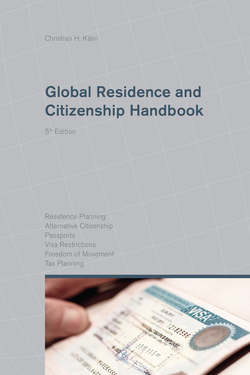Читать книгу Global Residence and Citizenship Handbook - Christian H. Kälin - Страница 44
На сайте Литреса книга снята с продажи.
Real estate transactions
ОглавлениеThe buyer generally bears the greater transaction risk, as is fittingly expressed by a principle of Roman law: Periculum est emptoris18, or in other words: Caveat emptor19. That is why certain precautions and clarifications are needed prior to every purchase in order to minimize the risks. As a long-term investment which usually ties up greater capital, the acquisition of real estate should be planned and carried out in a careful and rational manner.
Once the buyer has identified the target property, there are a number of practical and legal criteria that the buyer should observe thereby ensuring full and proper title to the property. Besides restrictions imposed by the country, there may be problems with the seller’s title, third party claims and other onerous issues that are not immediately apparent. It is imperative that the buyer investigates the title thoroughly and carries out the necessary due diligence, ideally with the help of a legal advisor.
The seller must ensure that he can produce all authorizations (e.g. consent of his spouse) needed for the purchase, as failure to do so would delay the transaction.
In most countries the seller is obliged to inform the buyer of any defects. As a rule, the seller must also inform the buyer of the existence of any pre-emption rights. Often, the seller is liable to a comprehensive obligation for information and disclosure and bears corresponding liability to the buyer. Accordingly, it is essential for the seller to settle all questions of liability in the agreement in a detailed manner. In general, it is recommended wherever possible to exclude all liability by the seller from the agreement (this is also common practice for re-sale property in most countries). This liability exclusion should be comprehensive and expressly include liability for legal and material defects, error and damage compensation, as far as this is permissible on the basis of the local law. In any case, care must be taken to ensure that the sales agreement contains no guarantees which the seller is unable to satisfy. If the seller makes any representations and warranties, a carefully drafted sales agreement will limit the warranties and representations to the period of time the seller has owned the real estate and exclude the periods of ownership by previous owners.
The seller should also note who is responsible for which fees – for example taxes and lawyers’ or notaries’ fees. In many cases, notaries’ fees and transfer taxes are divided on a fifty-fifty basis, but this division is ultimately a matter for negotiation. Lawyers’ costs are usually borne by the party commissioning the lawyer. However, the seller is always responsible for paying capital gains tax.
In most cases, the seller is also liable to pay the broker’s commission. This generally varies between 2% and 10% of the sale price in different countries and is usually subject to Value Added Tax (where such a tax exists). The property acquisition taxes which are levied everywhere are as a rule borne by the buyer. However, if they cannot be collected from the buyer, they may in some countries be charged to the seller. This is particularly relevant when the seller remains resident in the same country. With regard to capital gains taxes it is exactly the reverse: they are payable by the seller but the buyer may be jointly liable if the seller doesn’t pay them – and the tax authorities may be entitled to put a lien on the property.
When apartments or houses belonging to an owner’s association (e.g. concerning the shared amenities of a condominium) are sold, the amount of any reserve or renovation fund must be determined, as this can have an effect on the sale price.
A property designed for private use should above all bring subjective pleasure to its users and not only maintain and increase its value in objective terms. Therefore, careful clarification of these factors is most important before closing the deal.
1See Vertovec/Cohen (2008)
2See Ong (1999)
3Organization for Economic Cooperation and Development
4For an overview of these rules, see Chapter 3
5With the sole exception of Andermatt, where foreign residents can buy without any restrictions whatsoever; see www.henleyglobal.com/andermatt
6A more detailed overview of this important aspect is given in section 1.9
7e.g. Swiss Insurance Partners, see www.sip.ch
8E.g. the Netherlands, with regard to extended inheritance tax for citizens even if they have already left the country and are residing abroad
9E.g. 10 days in the UK or 30 days in Switzerland
10E.g. Hong Kong, Panama, Singapore
11For a good discussion of these issues, see Betten (1998)
12See Chapter 3
13Betten (1998)
14France has also recently introduced such a regime
15E.g. Australia, Austria, Canada, the Netherlands
16The author would like to thank Swiss Insurance Partners, Zurich/Dubai/Hong Kong, for their valuable input in compiling this section
17Société Civile Immobilière
18The purchaser runs the risk
19Buyer beware
